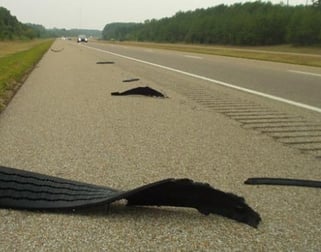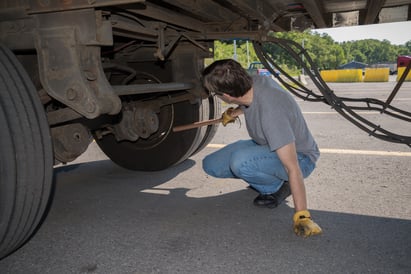Proper tire inflation is one of the most important items when it comes to fleet maintenance. On a daily basis, tires lose pressure even when there is not a parasitic loss. Studies show that on average, tires lose one pound of pressure per month. Gone unchecked, this can result in serious monetary loss to the company and loss of time to the driver.
 When a tire loses pressure, it creates more heat. Excessive heat will destroy a tire casing, which results in that tire not being able to be recapped. Of course, this is harmful to the environment because the casing must be scrapped prematurely. The driver can also lose crucial productive time when they have a blowout.
When a tire loses pressure, it creates more heat. Excessive heat will destroy a tire casing, which results in that tire not being able to be recapped. Of course, this is harmful to the environment because the casing must be scrapped prematurely. The driver can also lose crucial productive time when they have a blowout.
Another consequence of low air pressure is lower fuel economy. On average, a tire that is 10% below the manufacturer spec will result in 1% decrease in MPG. Over time this equates on average to a .5 per gallon decrease in MPG. For these reasons, it is vital to have fleet maintenance processes in place to ensure tire pressure is checked and maintained on a daily basis.

Here are some fleet maintenance best practices to take into consideration to maintain proper tire pressure:
- Ensure daily pre-trips and post-trips are followed with special focus on tire inflation
- Ensure your yards are clean of debris or FOD (foreign object debris)
- Check to see if you have magnets on shifters (yard horses) to clean the yard of FOD
- If you do have magnets installed on shifters, check to see if you
have a cleaning procedure for those magnets (where and how often) - Ensure tire audits are performed on the fleet by tire vendor or mechanics
- Perform quarterly tire inflation communications to everyone to raise awareness
- Pick one day a month for fuelers to perform tire pressure checks on all tires on all equipment when refueling where applicable






